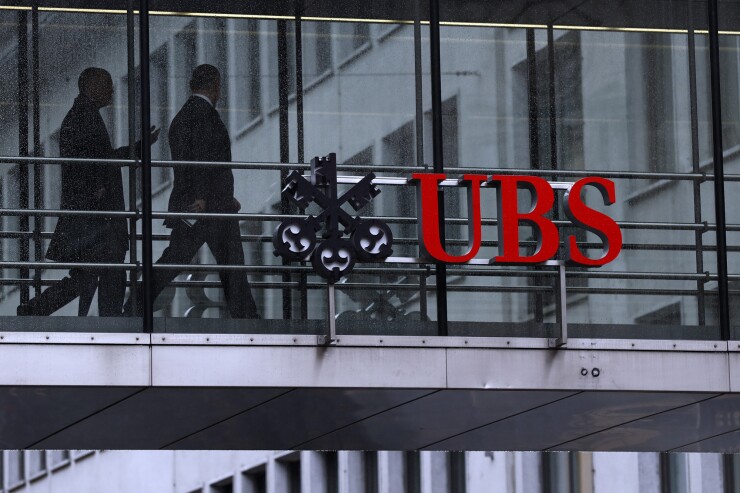The Swiss trial of an ex-employee of UBS Group AG charged with stealing data on the bank’s clients and allegedly selling it to German tax authorities was postponed by a day after the defendant failed to show up in court.
The case, which rakes up the thorny issue of whether such leaks are the work of a whistleblower or a thief, was rescheduled for Tuesday by the presiding judge, who said she had anticipated the possibility this might occur.
The man, whom Bloomberg is only identifying as Rene S., is accused of commercial espionage, violation of Swiss banking secrecy, money-laundering and illegal munitions possession, according to the indictment drawn up by Swiss federal prosecutors. Moritz Gall, his lawyer, wasn’t immediately available to comment on whether he expected his client to appear Tuesday morning.
The Basel native is suspected of stealing, over the span of a few days in 2010, details on more than 200 clients including over 30 family foundations that he allegedly sold to German officials, pocketing 1.15 million euros ($1.3 million) in the process.
Rene S. isn’t the first bank employee to go on trial charged with breaking Swiss banking secrecy. Sina Lapour, a banker’s assistant at Credit Suisse Group AG, was convicted for copying data by hand on more than 2,000 clients in 2007, then selling it to a middleman who passed it on to German tax authorities. At least two other incidents of German officials paying for purloined Swiss bank data has created growing tensions between the two countries, which take very different views on the issue.

According to Article 47 of the Swiss Banking Act first crafted in 1934, anyone who divulges clients’ secrets can be sentenced to five years in prison. The rule was used in 2015 to convict self-described whistleblower Herve Falciani, who gave stolen information about HSBC Holdings Plc clients to French tax authorities. More recently, a former Julius Baer banker was cleared of bank secrecy violations because he worked for a foreign unit of the bank in the Cayman Islands.
UBS, based in Zurich, has been under concerted pressure from German and French tax authorities in recent years. The Swiss Supreme Court is expected to rule in the coming weeks on whether UBS must hand over data on French clients that the French tax office had first requested in 2012. The French made their petition based on information from German authorities, who had seized data as part of their own tax probe, and a series of data leaks from within Swiss banks.
It was during Rene S.’s more than six years as an employee in UBS’s trust and foundations department in Basel that he gleaned the information that he is accused of selling, according to the indictment. The information he passed on led German authorities to search the homes of at least 233 UBS customers in Germany, the indictment says.
Gall said his client denies the charges against him. The indictment’s allegation that information about the foundations and their beneficial owners could only be obtained through the bank’s SAFIS and PRI internal systems is untrue, Gall said. Secondly, the allegation made by an external asset manager that the theft was done by a computer technician wasn’t pursued by either UBS or federal prosecutors, according to Gall.
A spokeswoman for UBS, which isn’t a legal party to the case, declined to comment.
Rene S. used the proceeds from the sale of the data to buy a 1.1 million-euro apartment on the Spanish island of Mallorca, which he sold a year later, according to the indictment, triggering the money-laundering charge. A search of his property in 2013 turned up hollow-point bullets, prohibited under Swiss law, prompting the illicit munitions charge.
The trial at the Swiss Federal Criminal Court is expected to last all week, with a verdict scheduled for January 21.





